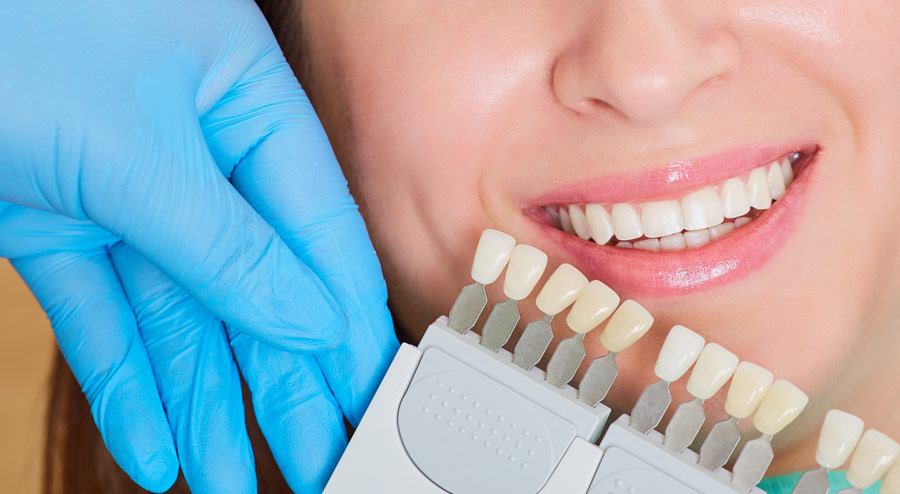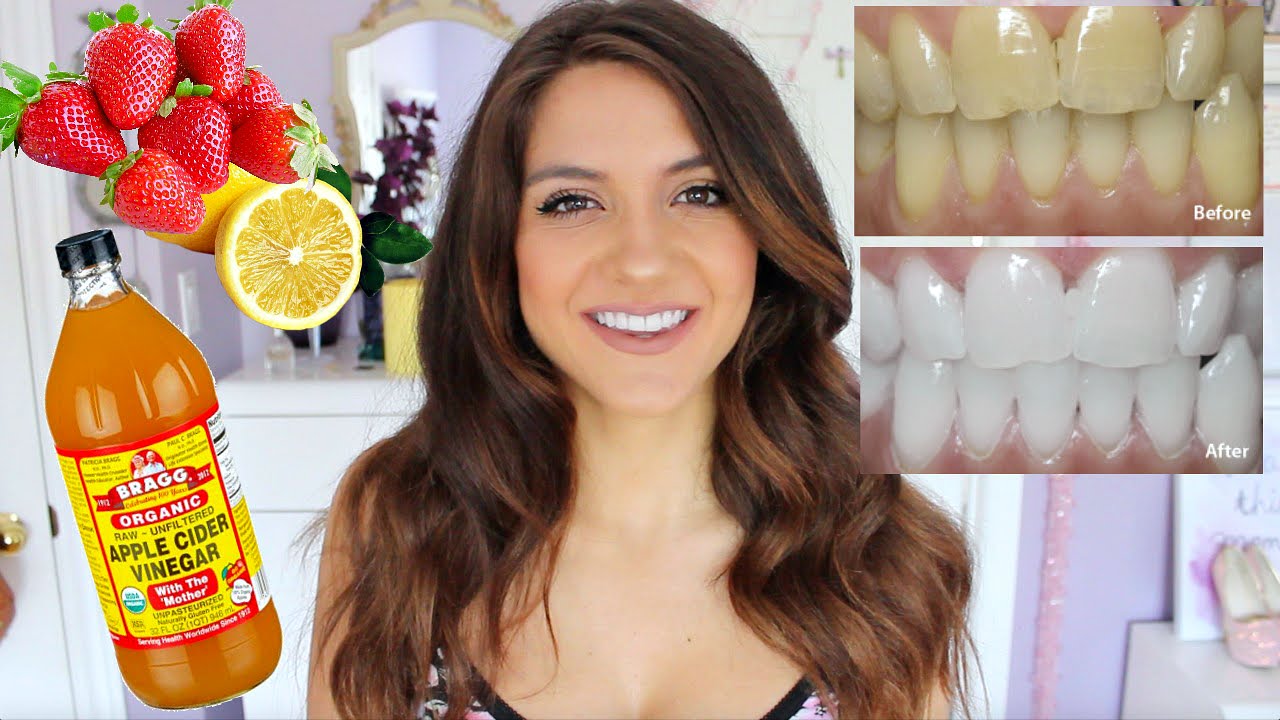Vinegar can be used for teeth whitening, but it may damage enamel if not diluted properly. Vinegar is a popular natural remedy for teeth whitening as it has acetic acid that helps remove stains and bacteria.
However, it is crucial to dilute vinegar with water to prevent potential enamel erosion and sensitivity. In addition, using vinegar sparingly and with caution is recommended to avoid any adverse effects on oral health. It is always best to consult with a dentist before attempting to use vinegar for teeth whitening to ensure it is safe for your specific dental situation.
Why Vinegar For Teeth Whitening?
Vinegar has been recognized as a natural teeth whitening remedy for centuries. Its acidic nature helps remove surface stains, brightening the teeth and restoring their natural shine. This natural solution is cost-effective and easy to use, making it a popular alternative to commercial teeth whitening products.
Pros Of Using Vinegar
- Vinegar is a natural and chemical-free option for teeth whitening.
- It effectively removes surface stains from the teeth.
- Cost-effective and readily available in most households.
- Easy to incorporate into daily oral care routines.
- Offers an eco-friendly alternative to conventional teeth whitening products.
Cons Of Using Vinegar
- Excessive use of vinegar may erode tooth enamel over time.
- Its strong, acidic nature may cause sensitivity in some individuals.
- It may not provide instant or dramatic results compared to professional whitening treatments.
- Long-term use of vinegar may alter the pH balance of the mouth.

Credit: www.facebook.com
How Does Vinegar Help Whiten Teeth?
Understanding how vinegar aids in teeth whitening can offer valuable insights into this natural remedy’s effectiveness.
Acetic Acid Breakdown
Vinegar’s key component, acetic acid, helps break down plaque and eliminate bacteria, preventing stains on teeth.
Removal Of Stains
The acidic nature of vinegar aids in removing surface stains from teeth, resulting in a brighter and whiter smile.
Types Of Vinegar For Teeth Whitening
Discover the various types of vinegar that can effectively whiten your teeth and enhance your smile. From apple cider vinegar to white vinegar, these natural remedies offer a powerful solution for teeth whitening without the use of harsh chemicals.
The use of vinegar for teeth whitening is gaining popularity due to its natural properties. There are different types of vinegar that can be used effectively for this purpose. Here, we will explore the various options available:Apple Cider Vinegar
– Contains acetic acid that helps remove stains. – Its antibacterial properties promote oral health. – Should be diluted before use to prevent enamel erosion.White Vinegar
– Known for its bleaching effect on teeth. – Helps in removing plaque and tartar buildup. – Mix with water for safe application on teeth. Apple Cider Vinegar and White Vinegar are two popular choices for natural teeth whitening methods.
Credit: www.emergencydentistsusa.com
How To Use Vinegar For Teeth Whitening
Want to brighten your smile without using harsh chemicals? Vinegar may be the solution you’re looking for. Its natural acidic properties can help remove surface stains and kill bacteria in the mouth, leaving you with a healthier and whiter smile. Wondering how to use vinegar for teeth whitening effectively? Keep reading to find out.
Dilution Ratio
When using vinegar for teeth whitening, it’s important to dilute it properly to avoid damaging your tooth enamel. The ideal dilution ratio is to mix one part apple cider vinegar with two parts water. This will help reduce the acidity of the vinegar while still maintaining its effectiveness in removing stains.
Application Methods
- Direct application: Mix the diluted vinegar solution in a small cup and use it as a mouthwash. Gargle for 30 seconds, then spit it out. Rinse your mouth thoroughly with water afterward to remove any residual acidity.
- Brushing: You can also dip your toothbrush into the diluted vinegar solution and brush your teeth gently for 1-2 minutes. Then, rinse your mouth well with water.
Precautions And Potential Side Effects
When using vinegar for teeth whitening, it’s important to take precautions and be aware of potential side effects. Some precautions include diluting the vinegar and using it sparingly to prevent enamel erosion, while potential side effects may include tooth sensitivity and gum irritation.
It’s important to consult with a dentist before using vinegar for teeth whitening.
Tooth Sensitivity
One potential side effect of using vinegar for teeth whitening is tooth sensitivity. The acetic acid present in vinegar can weaken the enamel, making your teeth more sensitive to hot and cold temperatures.
If you already have sensitive teeth, it is advisable to exercise caution when using vinegar as a whitening treatment. Sensitivity can vary from person to person, so it’s important to be aware of any discomfort or pain you may experience during or after the treatment.
If you notice increased sensitivity, it is recommended to stop using vinegar and try other teeth whitening methods. Consulting your dentist before trying any new whitening treatment is always a good idea.
Enamel Erosion
Another precaution to take into consideration when using vinegar as a teeth whitening remedy is the potential for enamel erosion. The acid in vinegar can gradually wear away the protective layer of your teeth, leaving them vulnerable to cavities and decay.
To minimize the risk of enamel erosion, it is vital to dilute the vinegar with water before using it as a mouth rinse. This will help reduce the acidity and minimize its harmful effects on your teeth.
Additionally, it is essential to limit the frequency and duration of vinegar treatments. Using vinegar too often or for extended periods can increase the likelihood of enamel erosion. It is recommended to consult with a dental professional to determine a safe frequency and duration for vinegar-based whitening treatments.
Summary
In summary, vinegar can effectively whiten teeth, but precautions need to be taken to avoid potential side effects like tooth sensitivity and enamel erosion. Diluting the vinegar with water and limiting its use can help minimize these risks. However, it is always best to consult with a dentist before starting any teeth whitening regimen to ensure it is safe for your individual oral health.

Credit: ar.pinterest.com
Frequently Asked Questions On Vinegar For Teeth Whitening
Is Diluted Vinegar Safe For Teeth?
Yes, diluted vinegar is safe for teeth when used in moderation and properly rinsed.
How Long Should You Wait To Brush Your Teeth After Vinegar?
Wait at least 30 minutes before brushing your teeth after consuming vinegar to protect enamel.
How Can I Make My Teeth Super White Fast?
To make your teeth super white fast, try using whitening toothpaste, whitening strips, or visiting a dentist for professional treatment. Maintain good oral hygiene and limit staining foods and drinks. Consider natural remedies such as baking soda or oil pulling.
Always follow product instructions.
Is It Safe To Rinse Mouth With Apple Cider Vinegar?
Yes, it is safe to rinse your mouth with apple cider vinegar. It can help kill harmful bacteria and improve bad breath. However, you should always dilute it with water, as undiluted vinegar can be too acidic for your teeth and gums.
Conclusion
Incorporating vinegar into your oral care routine can be a natural and effective way to whiten your teeth. By taking advantage of its acidic properties, you can help eliminate stains and maintain a brighter, healthier smile. Remember to use it sparingly and consult with your dentist for personalized advice.
Experience the power of nature’s remedy for brighter, whiter teeth.


